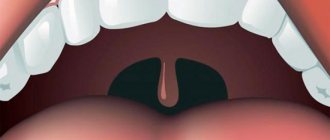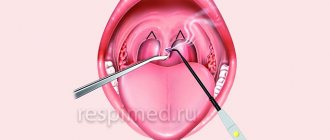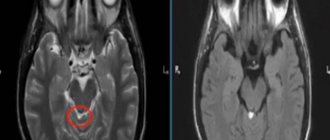29.01.2020 23038 0
- When to introduce the first complementary foods
- How to tell if your baby is ready for solid food
- Diet for young children
- Common mistakes in complementary feeding
- Prohibited products
- What to do if your child cannot eat solids
- Gameplay for eating
When a small child appears in a family, parents are faced with a difficult task: not only to raise and educate, but also to instill in the child all the necessary skills. For example, young parents are often concerned about how to teach their child to chew. We have collected advice for you from famous Russian and foreign pediatricians that will help you find the optimal solution.
What are the difficulties?
For adults, the process of chewing food seems completely natural. But the child only has a sucking reflex, and even liquid puree becomes unusual and unfamiliar food for him. In addition, the same period is characterized by other reflex reactions, due to which solid pieces of food that enter the mouth are rejected. They weaken by 4 months, but there is no need to wean the baby from the breast at this age: mother’s milk “adjusts” to the baby’s needs, its composition changes over time.
Tongue dysfunction: how it affects teeth
The habit of breathing through the mouth, including during sleep, leads to increased tongue dysfunction. The child begins to stick out his tongue more often (and the tongue is the strongest oral muscle), make additional efforts and press his tongue on the teeth.
What will happen to the teeth if such a habit develops?
- A diastema may form - a gap between the front teeth.
- The contacts of the teeth in the frontal region may be disrupted, then an open bite will appear - a pathology that is quite difficult to correct: it causes noticeable harm to the condition of the teeth, since the entire load falls on the chewing teeth in the lateral regions.
Open bite in a child
- The front teeth can rotate (turn around their axis) or form a protrusion - a forward tilt.
Children's teeth are quite pliable, as the child grows, the size of his jaws and the space in the row of teeth constantly increase. Therefore, the effort exerted by the tongue is quite enough to move the teeth, but they will no longer be able to return back to the correct position on their own.
One more problem
In addition to orthodontic disorders, difficulties with pronouncing sounds will increase. Speech therapy correction is designed for the correct structure of the teeth and the functioning of the tongue, so classes with a speech therapist will be very long and ineffective if the main cause of poor diction is not eliminated.
How to tell if your baby is ready for solid food
As a rule, the baby himself makes it clear that he is interested in updating his diet. This can be seen from his behavior:
- Stops sucking food from a spoon, removing it with his lips
- Tries to chew
- Shows interest in “adult” food
- Puts hard objects into mouth
- Opens mouth wide when feeding
Usually this happens no earlier than 6-8 months - this is when you can start giving your child cereals and other foods with small dense particles.
Underwater rocks
Up to six months, children have an active expulsion reflex - a natural defense against suffocation. Therefore, at the beginning of “communication” with semi-solid food, the child may choke and spit out the food. There is no need to be scared and abruptly return to purees and ground products! Chewing is a skill and needs to be learned.
If you've introduced semi-solid foods a long time ago and your baby is still choking, give him time. Place food in front of your baby and watch - let him try to put food in his mouth with his hand on his own. Children should be praised and not scolded at the table! Otherwise, food may begin to be associated with violence and lead to an eating disorder.
Links:
- The American Journal of Clinical Nutrition, Volume 94, Issue 3, September 2011, Pages 709–716, https://doi.org/10.3945/ajcn.111.015164
- The American Journal of Clinical Nutrition. Mastication of almonds: effects of lipid bioaccessibility, appetite, andhormone response. Bridget A Cassady. https://ucce.ucdavis.edu/files/datastore/608-11.pdf
- Cell. Nicolas Dutzan. Published: January 10, 2022 DOI: https://doi.org/10.1016/j.immuni.2016.12.010
- Effectiveness of Chewing Technique on the Phonation of Female Speech-Language Pathology Students: A Pilot Study. Meerschman I DOI:10.1016/j.jvoice.2015.06.016
Common mistakes
Young parents may involuntarily make mistakes. This is normal and should not cause panic: the first child is always difficult. If your baby refuses solid food, there are several reasons.
Particle size too large
. A child’s protective reflex is triggered, causing him to often spit out food. And if the piece is very large, the baby may start vomiting.
Complementary foods were introduced very late
. Some “specialists” and “experienced relatives” convince young mothers that they need to feed their baby breast milk for up to a year, without giving him other food. The baby gets used to this diet, and his chewing reflex does not develop. There is no need to be afraid, it is difficult, but it can be fixed.
The child does not like the taste
. Yes, he is already an independent person who has formed his own preferences. So the baby can easily eat broccoli and refuse the baked pear. Or vice versa. You should not force your child to eat something he doesn’t like or force him to finish the entire portion.
Negative associations
. Some psychologists believe that refusal to eat from a spoon may be caused by the fact that the child associates food with medicine (manifests itself in cases where the baby was given tasteless medicines).
Too many new products
. Don't try to include a lot of different foods in your diet. As Ellyn Satter writes in Feeding and Nourishing Your Baby with Love and Common Sense, it's best to add "scary and unfamiliar" foods to what your baby already loves, and in very small portions.
The child is fed like an adult
. Larisa Surkova writes in the book “How great it is with a child from 1 to 3 years old: a generator of useful tips”, you should not deny your baby tactile sensations. If he wants to crush food, sniff it, smear it on the table, let him do it. In the end, the table can be covered with oilcloth (and the floor, by the way, too).
No reason to worry
A child, like an adult, can fool around and stick out his tongue. Therefore, do not rush to run to the doctor.
- Pampering. During the game, the baby expresses his good mood in this way.
- Teething. At this time, the gums become swollen and painful. The child tries to relieve the pain and scratch the gums with his tongue. At this time, you can notice how he sucks or chews his tongue, refusing teethers.
- The child trains the muscles of the tongue. This is inherent in nature. This is how he prepares for speech activity.
- Hunger. The desire to eat can be expressed in this way. Instead of eating, he chews his tongue. When the child learns to ask for food differently, the problem will go away.
- Physiology. The tight lower jaw and large tongue do not allow the latter to fit comfortably in the oral cavity. The problem goes away when the baby is 6 months old.
- Dry, hot air. In these cases, the oral mucosa dries out, and the baby tries to moisten it.
- Short hyoid frenulum. This problem becomes noticeable already in the maternity hospital.
Parents are often concerned with the question: why does the baby chew or suck his tongue? The main reasons that should not cause concern in adults include:
- preparation for the act of chewing adult food;
- early weaning from the pacifier;
- when a child is very busy and concentrates on performing some action, he chews his tongue;
- You may notice how your baby chews his tongue when he is bored.
Adults should learn to recognize dangerous and harmless moments that cause a baby's tongue to stick out. It is very important to distinguish behavioral characteristics from a painful condition in time.
What to do if your child cannot eat solids
In some cases, even a one-year-old baby cannot chew food and constantly choke on small pieces. This means that the chewing reflex has not fully formed, and parents will have to act very delicately:
- Prepare thick cream soups and purees for your child, but leave a few tiny boiled pieces of vegetables when blending
- Later, the vegetables can be chopped with a fork; the pieces will become larger, but not hard enough for a child to choke on.
- The best effect will be achieved by products whose taste the child likes. These can be baked apples and pears, bananas, children's cookies
- Food needs to be made not only tasty, but also beautiful so that it attracts the baby
If, during the learning process, the child continues to choke and is unable to swallow solid food, this is a reason to consult a doctor who will find the cause of the problem.
Sniffles, grunts, coughs
From early childhood, children understand that during illness, parents forget about their important, adult affairs and devote all their time to the sick child. As children get older, they may deliberately blow their nose loudly, cough, or sigh while pressing their hand to their forehead. At the same time, the little pretenders feel good, they just want to attract the attention of their parents. Children want to be pitied, shown care, hugged and given warm milk. This happens, as a rule, in families where parents are busy with their own affairs and do not want to spend time with their children.
Game process
The child needs to be interested. A game story for eating is the absolute norm. During the process, you can tell your baby an interesting story in which he will be involved. The well-known “airplane” flying to the “hangar” is a real way to feed a child without nerves and hysterics. However, it is important to understand that if the baby begins to turn away, it means that he has already eaten. There is no need to feed him with the rest of the puree, even if it is only a spoon. Teaching a baby to eat “adult” solid food is a really difficult task that requires attention and patience from parents. Remember that you are helping your child develop one of the most important skills! On this path you need to become an ally to the baby. Force feeding will cause rejection. It is simply impossible to teach by feeding tasteless purees or forcing the child to finish eating porridge when the child is already full.
(2 ratings; article rating 5.0)
Share Share Share
What are the symptoms of teething
Only some parents do not encounter difficulties with their child’s teething and notice the incisor by chance, not understanding when it appeared. In most cases, the process is accompanied by unpleasant symptoms:
- Swelling, “looseness” of the gums. Redness and bumps may form. Sometimes the teeth show through the gums. In some cases, there are bluish hematomas.
- Increased salivation. This may cause rashes around the mouth. But salivation at 2 months of age does not always indicate teething. During this period, such a process is physiological. If the rashes appear in other places, this is not related to teething.
- Restless state. The child cries a lot, is capricious, and the quality of his sleep deteriorates. Often the baby cannot be calmed down. Conventional methods (swinging, pacifiers, etc.) do not help.
- Increased body temperature. More often these are indicators up to 37.5 ˚C. This can happen due to local inflammation (of the gums). A higher temperature indicates the activity of viruses.
- Loss of appetite. During the period of teething, children eat poorly or refuse to eat at all. Sometimes the baby cannot be put to the breast. Some babies kick their legs and arch when feeding.
- Runny nose and cough. Due to increased salivation, mucus flows down the back of the throat. It gets into the nasal passages, since the baby at the age of two months is more in a lying position. When mucus enters the throat, it provokes a cough. More often it appears during sleep.
Such symptoms do not occur all at once and can be combined in different ways. They often become a serious cause for concern for parents. Even the fact that a child is teething at such an early age is already shocking to them.
It is important not to confuse the signs of infectious or neurological diseases that have similar symptoms with the process of teething. Therefore, it is better to show the baby to the doctor. The following symptoms are also reasons to seek help: the child is very lethargic, has a high temperature (above +38 C), vomiting or mouth ulcers. A child may also vomit due to excessive salivation when mucus enters the stomach. Loose and frequent stools also indicate an infection. Diarrhea can cause dehydration.
Hypothyroidism
The cause of this disease is problems associated with the thyroid gland. Children whose mothers received insufficient iodine during their waiting period are especially likely to get sick. Tests to detect the disease are taken from newborns while still in the maternity hospital. The site for blood collection is the baby's heel. If after the examination, mommy was not invited to receive medical recommendations, then there is no need to worry. This means that the child is not sticking out his tongue because of hypothyroidism.
The disease is accompanied by the following symptoms:
- the skin becomes marbled or yellow in color;
- the baby is constantly with his tongue hanging out;
- the skin loses moisture and becomes drier;
- the baby has a developmental delay;
- swelling of the tongue, in which it swells and does not fit in the baby’s mouth;
- the outlines of the face become denser;
- cyanosis of the nasolabial triangle appears;
- it is difficult to gain weight;
- The baby suffers from constipation.
Treatment of the disease begins only after a thorough examination, which includes an analysis of the content of thyroid-stimulating hormone in the baby’s blood and an ultrasound of the thyroid gland. Only after this the doctor prescribes drug treatment with drugs containing thyroid hormones.
Associated symptoms
Many symptoms of various diseases can accompany tongue chewing. As mentioned above, these are endocrine disorders, infectious diseases, often teething or pathologies of the bite and development of the jaw bones.
In addition to all of the above, this habit can be accompanied by many inflammatory diseases of the oral cavity:
- glossitis - inflammation of the tongue,
- stomatitis - inflammation of the mucous membrane,
- gingivitis – inflammation of the gums.
These pathologies always cause discomfort in babies in the form of itching and pain, so they begin to drown it out by chewing their tongue. A vicious circle is created here - the child bites the tongue, thereby injuring it, which further aggravates the inflammatory process. That is why chewing the tongue itself contributes to the development of diseases.
Help for autism at EMC
If the diagnosis is established, it is necessary to immediately begin working with the child, and this work must be comprehensive:
- The psychiatrist selects drug therapy (if abnormalities are detected before the age of 1 year, you can often do without medications).
- A psychologist, neuropsychologist and defectologist draw up an autism correction program and regularly work with the child, conducting various classes, testing, and games.
To achieve the best result, complex work of specialists is important, and not just one psychiatrist. It is important not to waste time, but to correct autism at an early age.
Why does a baby often chew or suck his tongue?
Some mothers note another type of alarming behavior in their children - tongue chewing. Why does a baby chew or suck his tongue? This usually occurs at the age of 5-6 months, when the moment of eruption of the first milk teeth approaches. By this time, the child’s salivary glands are already well developed, as preparations are underway for the transition from exclusively dairy nutrition to a mixed diet with the addition of complementary foods to the diet.
Copious secretion of saliva causes a swallowing reflex. The baby learns to swallow excess liquid in the mouth, thus preparing its digestive system for solid foods.
According to pediatricians, a child of this age usually chews his tongue before an upcoming feeding, at times when he feels hungry. However, parents' attention should be drawn to constant chewing of the tongue that is not associated with food intake. According to neurologists, this behavior indicates a high level of nervous excitability.
In some cases, a baby chews his tongue if parents try to wean him from the habit of thumb sucking. Some mothers strive to wean their babies off the pacifier as quickly as possible, remove all pacifiers, and stop attempts to develop the sucking reflex by the age of 8 months. Under such circumstances, the child involuntarily tries to compensate for the deficiency, so sucking the pacifier is replaced by chewing the tongue.
Another factor that provokes this behavior is teething. Swollen gums cause discomfort, the baby wants to get rid of the discomfort. He moves his tongue along the gums and in this way tries to scratch the place where a new tooth will soon appear.
Experts recommend communicating more with infants if there is a tendency to chew the tongue. Perhaps the baby just needs attention from his parents. Communication must be sincere, then there will be no intrusive actions in the child’s behavior.
Causes of a child's tongue sticking out
Good day to you, dear friends! Today we will look at another issue that concerns the health of your baby. We're talking about sticking out the tongue. Surely this phenomenon has not passed by any young family and, I am sure, it causes concern among parents. “What if this is a very serious illness?” - This is exactly what most mothers think.
Looking ahead a little, I would like to say right away that sticking out the tongue is a completely normal phenomenon for infants. Almost any small child will sooner or later start doing this. He will also spit and drool, there is no escape from this.
It is also worth distinguishing between two concepts: whether the baby sticks his tongue out on his own or whether it constantly falls out and does not hold on. If you have the second option, then here you urgently need to sound the alarm and run to the pediatrician.
I will help you figure out the reasons for the tongue sticking out. It is also worth noting that they may differ depending on the age of the baby.











